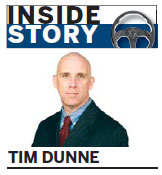
During the past few weeks, several China-based electric vehicle makers have been making headlines with announcements of new contracts in the US market just as several US electric vehicle makers based in California face new challenges.
Chinese automaker BYD Automotive Co, which boasts Warren Buffet as a major investor, recently signed a contract in the US with the city of Long Beach in California to build 10 electric buses at a former recreation vehicle facility in nearby Lancaster, CA.
This arrangement allows BYD to take advantage of buy-American subsidies for electric vehicles and public transportation. BYD has reportedly made 1,000 electric buses, most of them operating in China, and has completed a pilot program with rental company Hertz, according to the company.
BYD Chairman Wang Chuanfu made his original fortune producing batteries for cellphones and laptop computers, which have a reputation for high quality and durability.
Despite this positive outlook for BYD, it should be noted that the brand is recognized primarily as a passenger vehicle builder in China - not a bus builder - and that the BYD nameplate ranks below the industry average in a number of JD Power studies, including initial quality, automotive performance, execution and layout, vehicle dependability, sales satisfaction and customer service.
Another Chinese vehicle maker is also said to be entering the electric vehicle market in the US. Jianghuai Automotive Co has reportedly reached a deal with a US company called Green Tech to produce 2,000 vehicles, according to a post on Hybrid-EV.com.
JAC is known primarily as a light truck manufacturer in China - not a passenger-vehicle builder - and is not known for its battery technology. It is also not clear whether the company would be able to meet strict US vehicle standards for safety.
US automakers
As Chinese automakers try to enter the US market, two EV automakers in the country have been dealing with challenges, while a third appears to be making some gains.Coda Holdings in Los Angeles filed for Chapter 11 bankruptcy protection on May 1 after selling only 100 electric sedans, according to a Reuters report.
Coda launched its five-passenger electric car in California a year ago at a suggested price of $37,250. The Coda car had a range of 125 miles on a single charge, but also was recalled for faulty air bags.
Fisker Automotive, an Anaheim, California startup has stopped making electric vehicles - its Karma plug-in electric hybrid sports model - and has eliminated three-fourths of its workforce.
The retail sticker on a Karma was $102,000, but recent news reports say models are being offered on eBay for half of the original retail price. Although the Karma is considered a beautiful design, it did not fare well in some tests conducted by various automotive and consumer press.
However Fisker could have another chance. Several recent news reports said that automotive industry icon Bob Lutz, who started VL Automotive with industrialist Gilbert Villareal and rolled out a prototype Destino earlier this year, has made a bid for Fisker through a prepackaged bankruptcy.
The Destino essentially is the Fisker Karma with the electric drivetrain replaced by a supercharged V-8 engine that powers a Chevrolet Corvette ZR1. China's Wanxiang Automotive - the largest auto component supplier in China - is already involved with Fisker. It bought bankrupt battery maker A123 Systems late last year, the battery supplier for the Fisker Karma.
China's Geely also looked into buying Fisker, but didn't move forward due to the outstanding government loans, according to several news services.
But there's good news for another niche alternative vehicle maker in the US.
Tesla Motors based in Palo Alto, California led by PayPal entrepreneur Elon Musk announced it would sell new shares to raise $830 million in capital. Part of the money reportedly would be used to pay off federal loans including a $440 million loan owed to the US Energy Department, according to news reports. Musk intends to buy $100 million of the shares himself.
Also in May, Tesla received positive reviews from Consumer Reports on its Model S.
Since a positive first-quarter earnings report, its stock price increased 81 percent over the past month.
Year-to-date, the stock has risen nearly 156 percent, according to several news reports. Even more promising is an LMC Automotive report that Tesla outsold the flagship sedans from Mercedes, BMW and Audi in the first quarter of 2013 in the US market.
The writer is the director of global automotive industry analysis at JD Power and Associates
(China Daily 07/01/2013 page18)
